Residents of this sleepy little colony in West Delhi spend the better part of their day idle. The men of the colony stroll to the labour chowks, not knowing whether they'll find work that day; the women stay home to look after the families.
But this laidback sprawl of shanties bursts into frenetic activity at around 3 pm every alternate day –when the water tanker rolls in. In a matter of minutes, the droopy-eyed residents spring into motion and turn intensely competitive. Arguments over who gets to fill water first break out, and those in queue shove and push – shattering the sleepy calm.
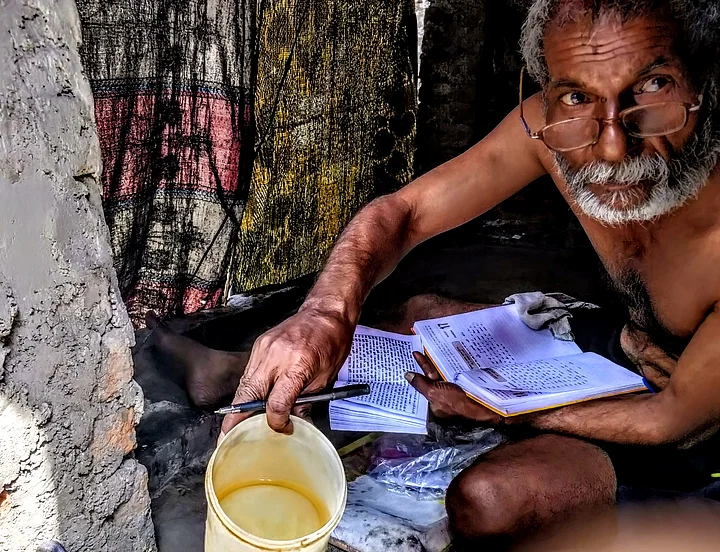
Lal Bahadur, 60, breathed his last after being caught up in a brawl that broke out on 17 March after the water tanker had arrived. Bahadur had tried to break up an altercation between his son and another man. But things soon got out of hand; he was dragged behind a car by four men and beaten to death.
The Quint visited his colony, Shaheed Sukhdev Nagar in West Delhi, to examine the severity of the water scarcity that had led to this violence.

The blue-green door to Bahadur's home is locked. After his death, the family packed their bags and left for Jaunpur village in Uttar Pradesh, almost 800 km away. When we asked neighbours whether the family had other relatives in the area, we were directed to a house opposite Bahadur's residence. We were greeted by 35-year-old Ranjita. She was dressed in a dark blue saree and showed us a photograph of Bahadur on her phone.
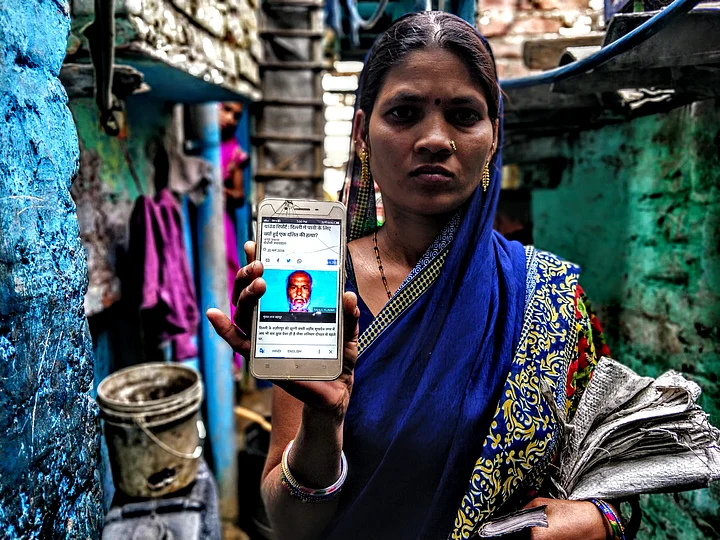
"They've gone to the village to mourn him," she says, adding that things rapidly spiralled out of control that day. "Fights happen often, but are usually settled. Such anger has never been witnessed before. The man, who called 2-3 of his friends and beat Bahadur to death, has lived here for 30 to 35 years now. He and I hail from the same district in UP. They've never fought with anyone here before. All this has happened because we’re all in desperate need of water".
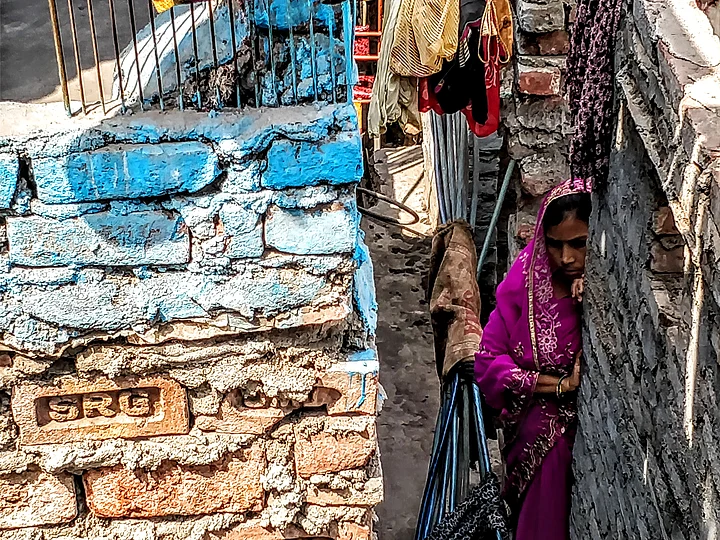
We are now minutes away from the clock striking three. And in the narrow bylanes, where natural light is scant, the residents stand watch for any sight of the water tanker. They wait in the anticipation that they will be the first to get the clean water they need. Suddenly, someone shouts: "The tanker is here". The tanker is 15 minutes early today. Surprisingly, there aren’t many adults walking to the tank. Instead, most of them are children.
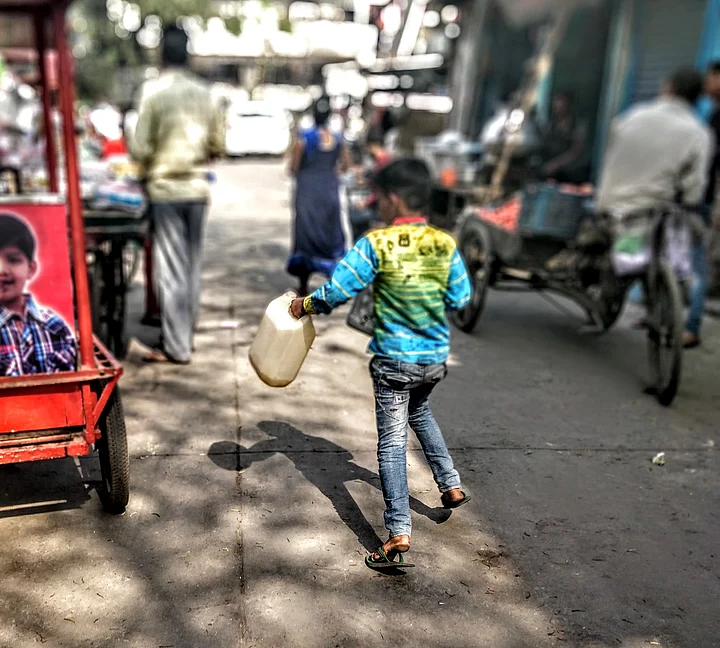
A 45-year-old woman from the locality has taken charge of ensuring that everyone gets water through one of the four pipes of the tanker. Women flock to her end. There is commotion. The woman yells as she tries to bring about some decorum.
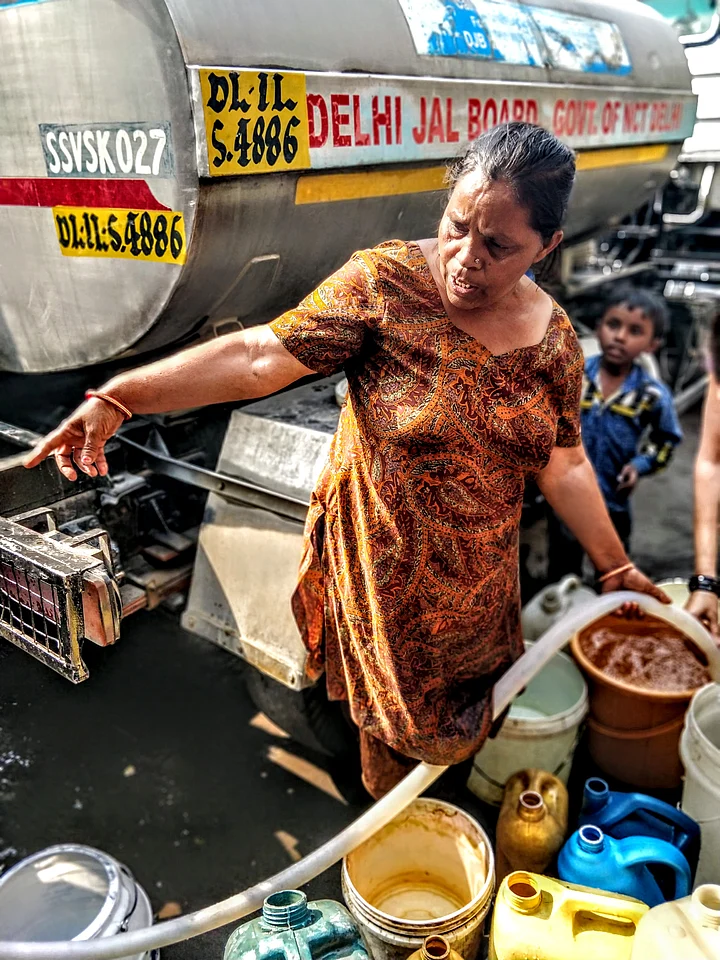
Kids try to cut in line to get to the water first. But the adults get on each others’ nerves as they wait in line, angry and flustered. They jostle among themselves as the children fill up water. I spot 12-year-old Kajal as she makes her way in and out of the unruly queue.
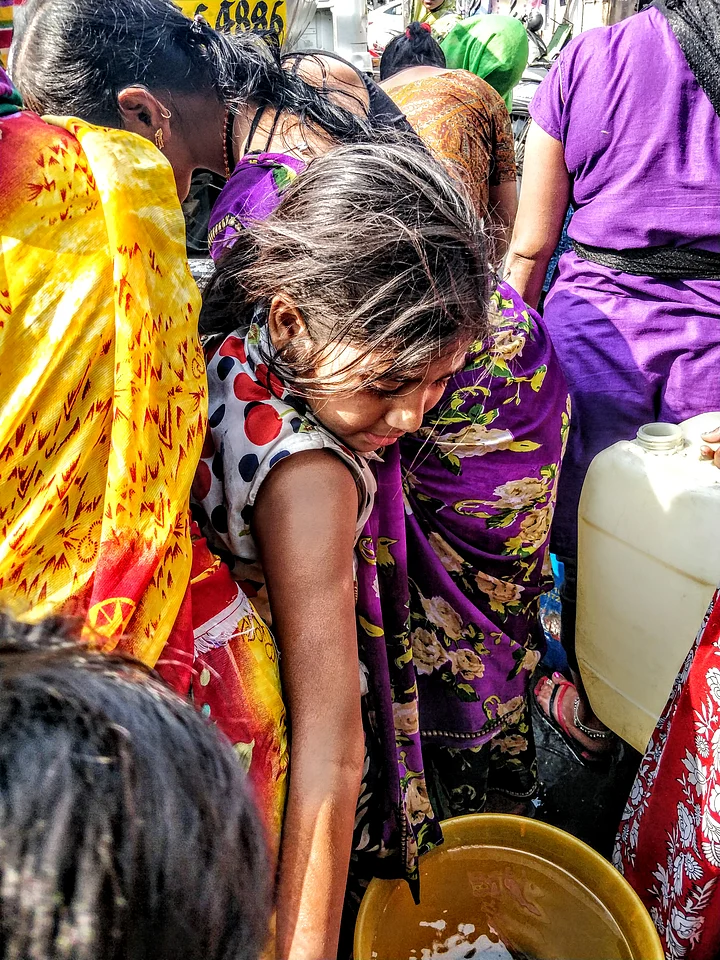
Before I know it, Kajal has filled four containers with water and is heading home. Other girls aren’t as lucky.
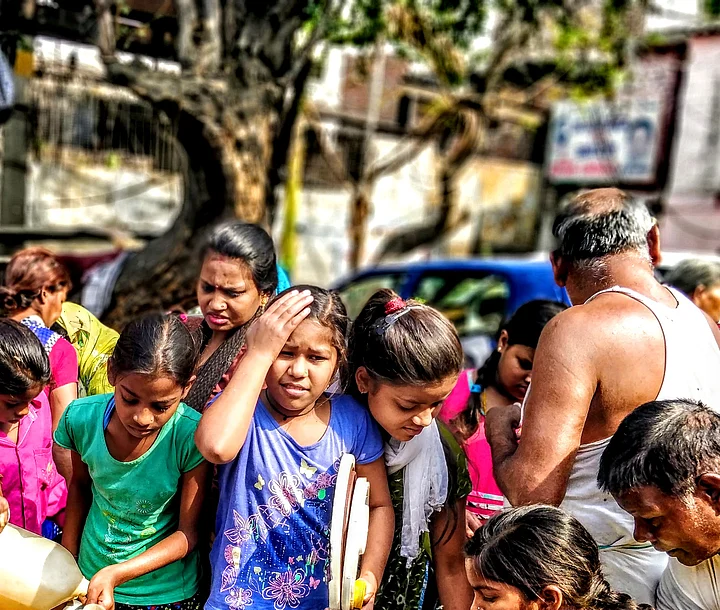
The girl in the purple shirt struggles to get closer to the pipe. "You're cutting the line," she tells a man on her left. She turns to the person who is now in charge of the pipe and tells him to give water to those who have stood in line longer than the others have.
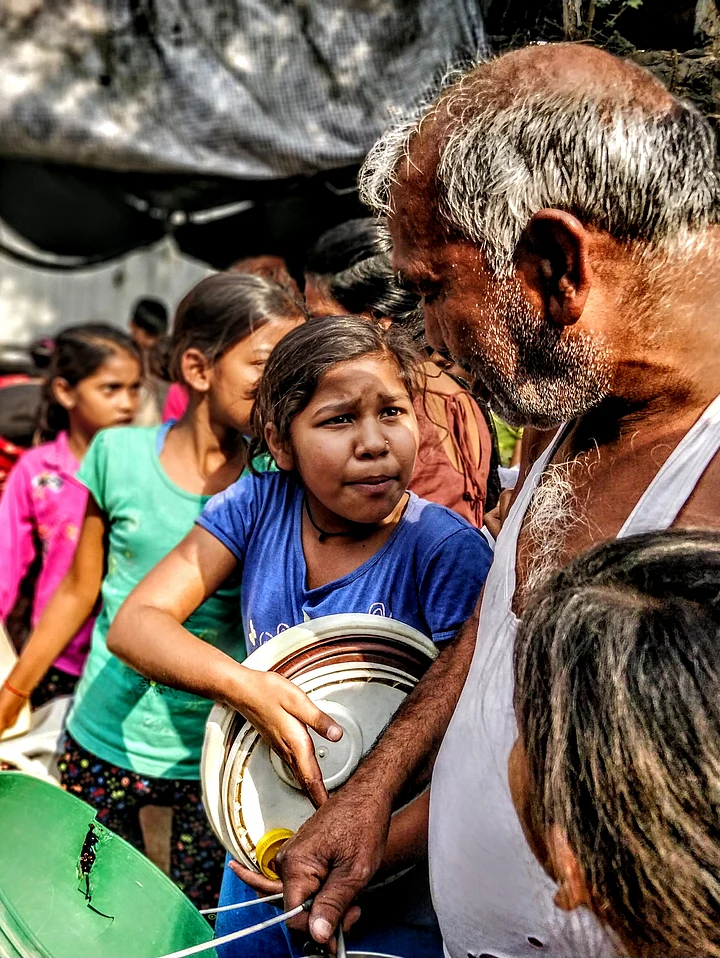
Her plea goes unheard. But she refuses to give up. Other children wait patiently for their turn, while a few make their way out of the ruckus, carrying their precious cargo home. As they weave their way out of the crowd, they take a moment to catch their breath.
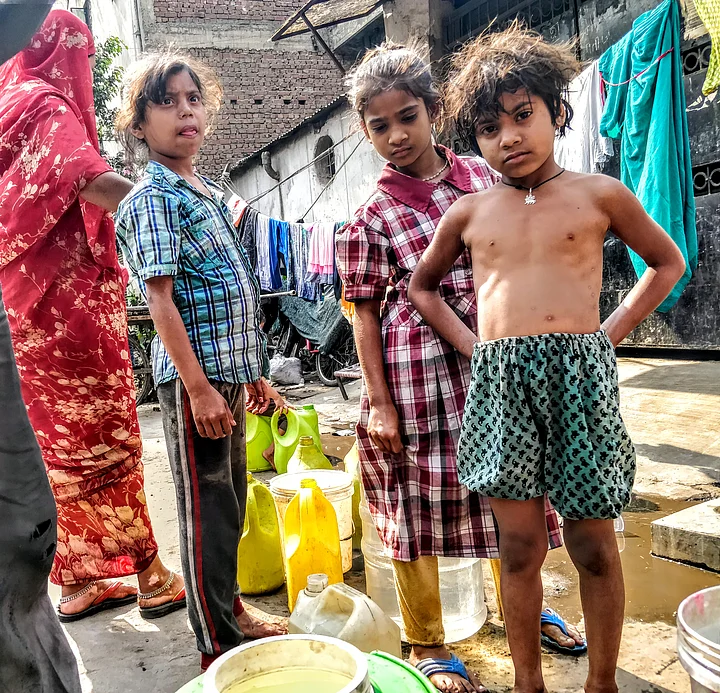
A child sits alone on the ground, away from the crowd around the tanker. He looks around for someone to fetch him.
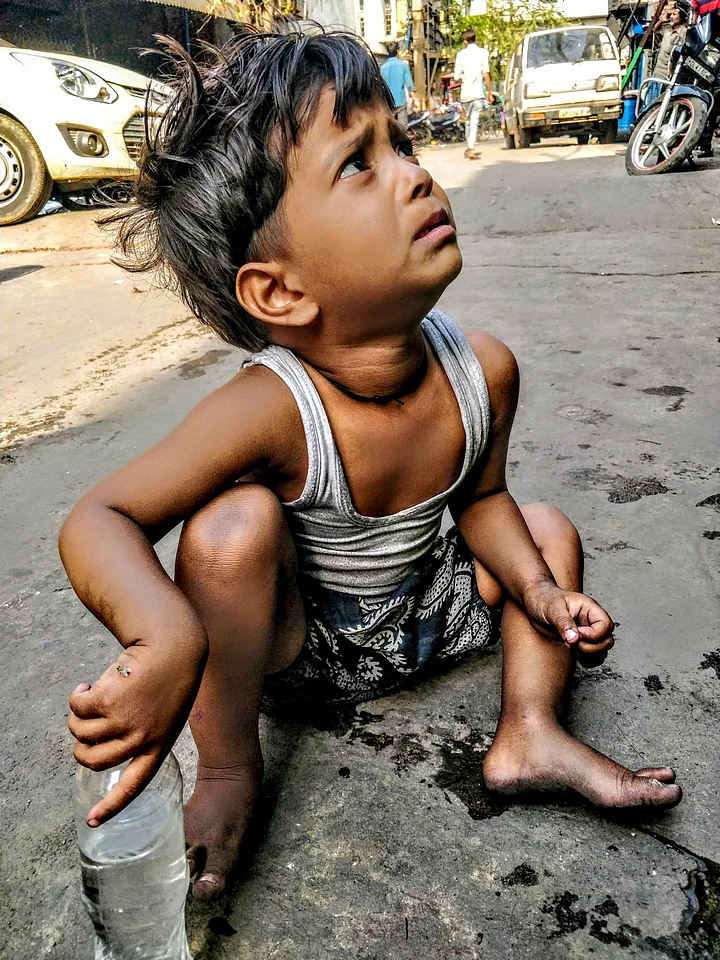
Right then, I’m distracted by the shout of a visibly angry man, dressed in red. "You think you have more strength than me? Don't push me out of the way," he says, frustrated.
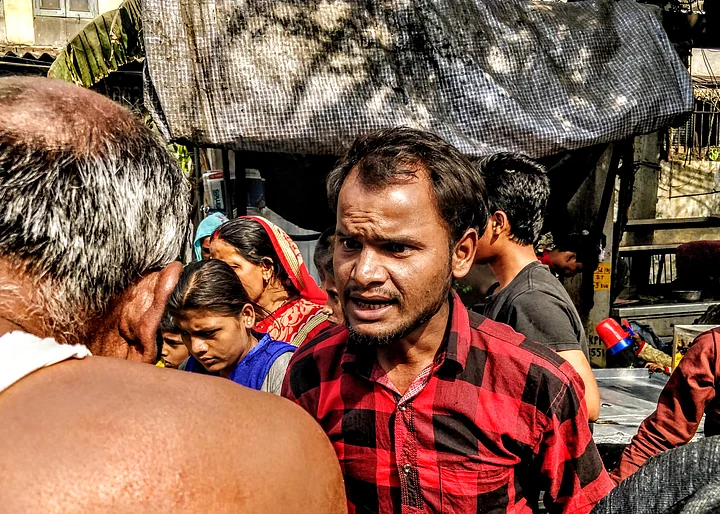
The cursing and yelling grows louder. "This is regular, this happens every day," a woman tells me as I look at the crowd.
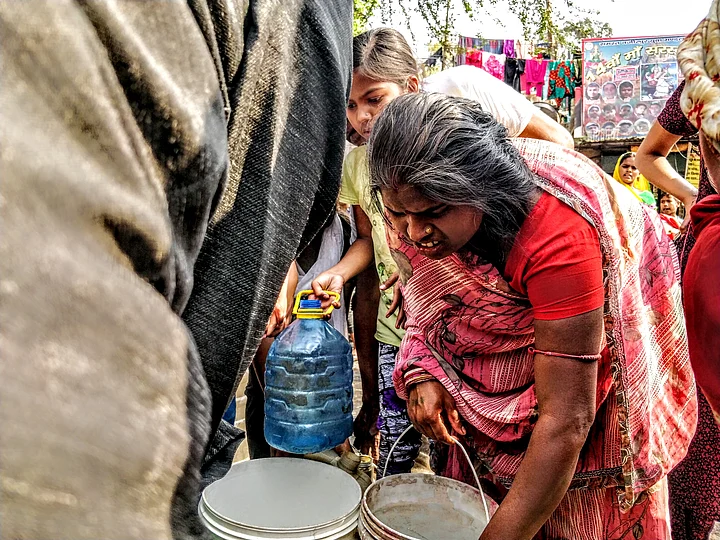
The lone tank is now empty, but not everyone in the crowd has managed to get water. Among them is 55-year-old Devi; She will go home without water today.
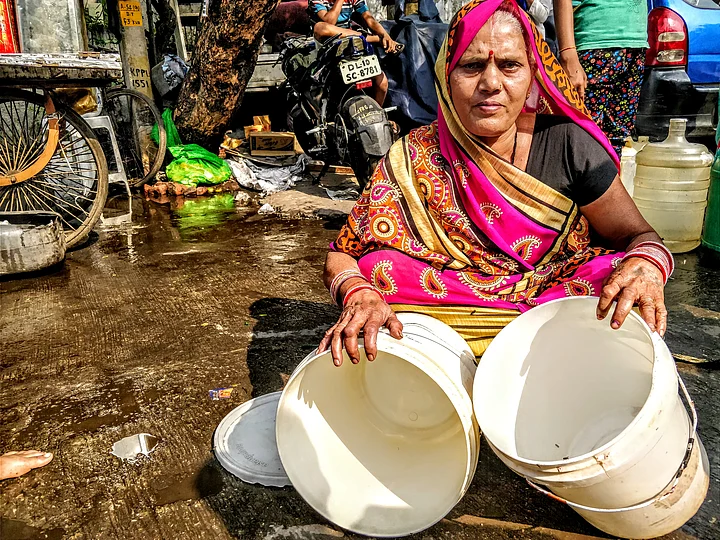
The street around her is damp. Puddles have formed where the water has spilled from the pipe that was pulled and pushed by those struggling to be the first to fill the water. More water spills out of the containers as people carry them home.
As I walk into the bylanes, I spot 75-year-old Kapuri Devi mumbling something under her breath as she walks. "My sons were not at home. No one was there to fill drinking water for me today," she says, as she sulks and holds up her empty container.
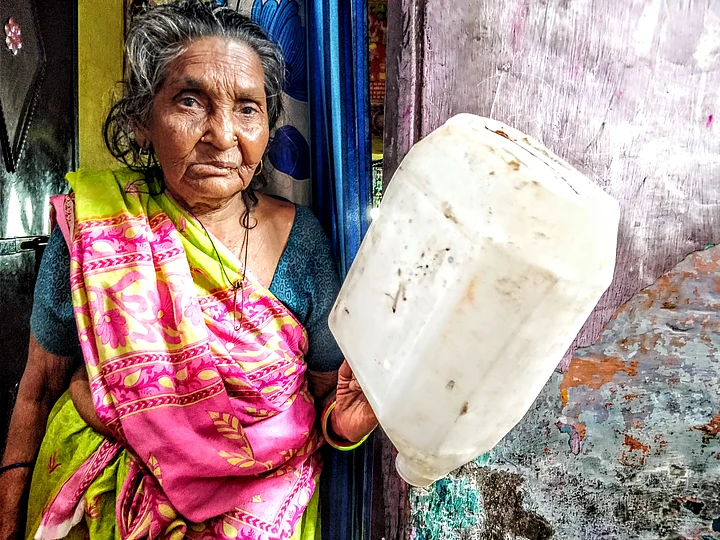
I have to do these things at my age, she complains as she begins to take small steps towards her home.
I spot Kajal in one of the houses on my left. She has just placed four containers of water under her bed.
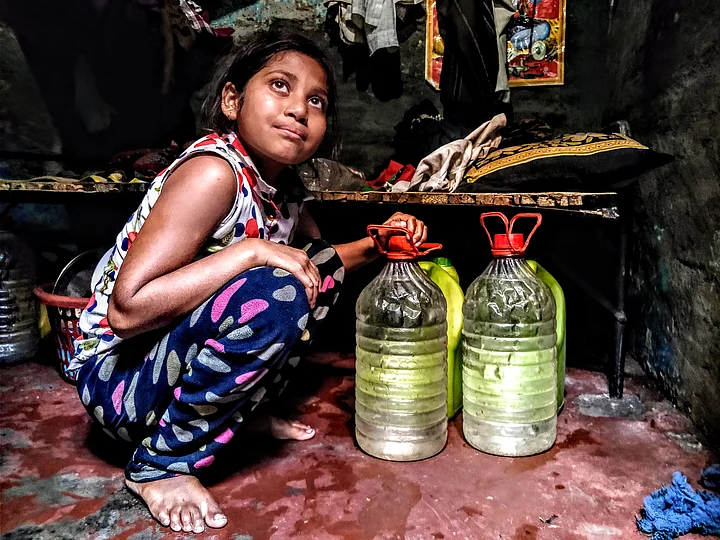
The 12-year-old watches over her four younger siblings as they wait for their parents, who are daily-wage labourers, to return home from work. "Now that a man has died, they say they will construct pipes and taps in the houses. They didn’t do anything when he was alive,” she says.
Residents say they head to a nala (ditch) nearby to get water every morning. A quick glance at the water is enough to tell you that it isn’t clean.
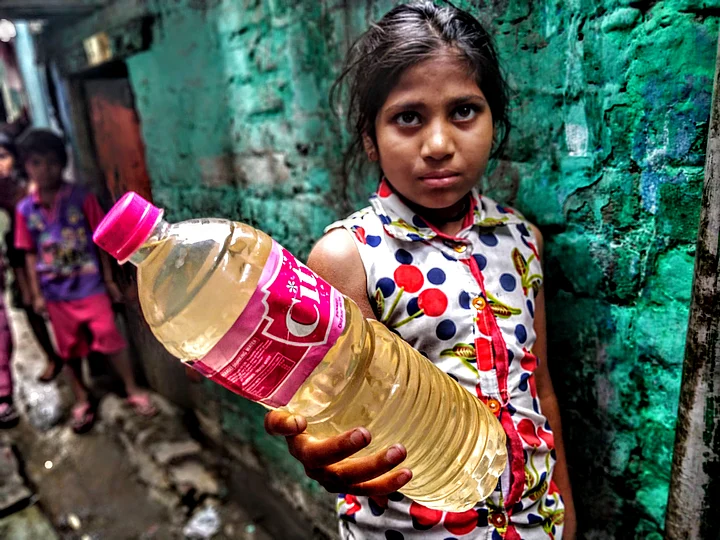
After a few hours, cleaner water begins to flow from the ditch. Kajal points to buckets of water. Layers of dirt float on top.
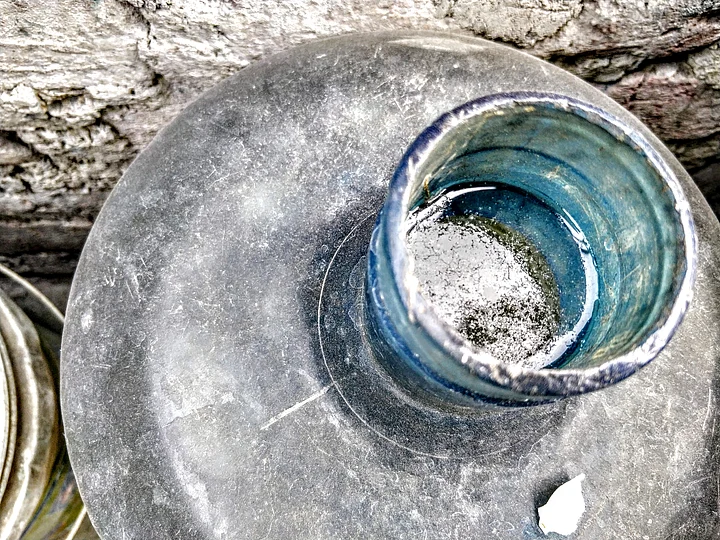
We ask Ranjita, who lives in the same lane as Kajal, what this water is used for. "This water is much cleaner, but it stinks sometimes. So we throw it. We don't use this for drinking. It is used for bathing, washing clothes and to clean utensils, spoons and plates." As Ranjita says this, I turn to find the youngest of her four daughters. Dressed in pink, the four-year-old is eating.
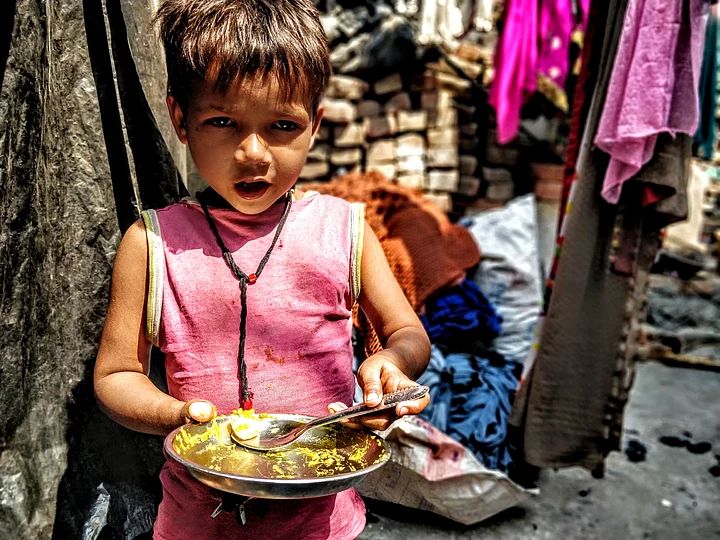
Back out the streets, a few water containers are lined up; Some contain water with a yellow tinge, while others remain empty.
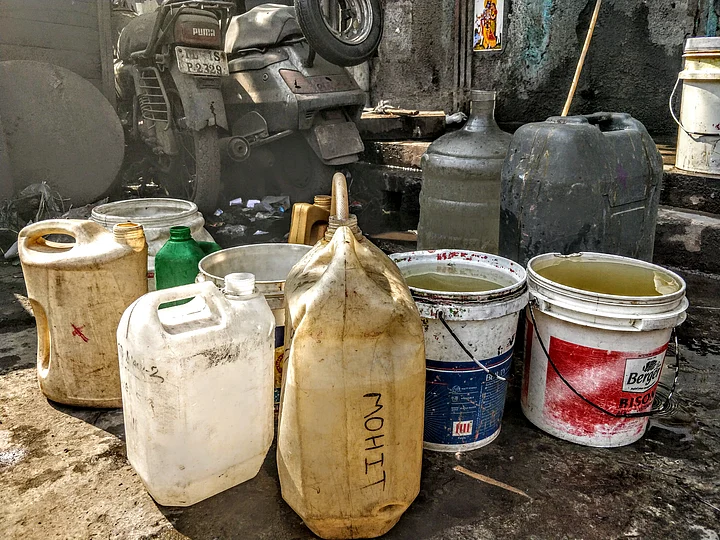
"When we go to fill water, there are fights. No one is organised about how water should be distributed. This happens everyday. There is just one tanker that comes here. Some want to fill less water, some fill more. That is why there are fights," she says.
Ranjita earns a living by mending socks and cutting the threads that hang from them. Her one-room house, that she shares with her husband and daughters, is filled with bundles of socks.
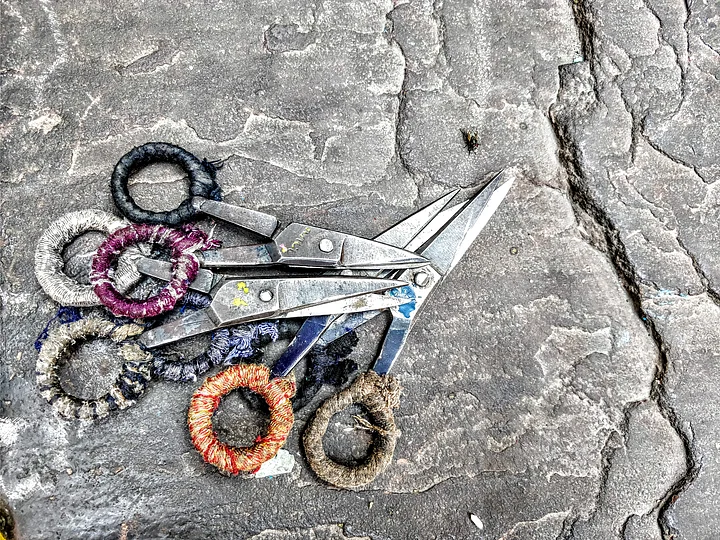
In the bylanes, people recede back into their homes.
In the arguments, aggressive behavior and disarray that ensued in the afternoon, there was no mention of 60-year-old Bahadur and the circumstances surrounding his death. Most were busy jostling and cursing, while some like Kapuri Devi were left out.
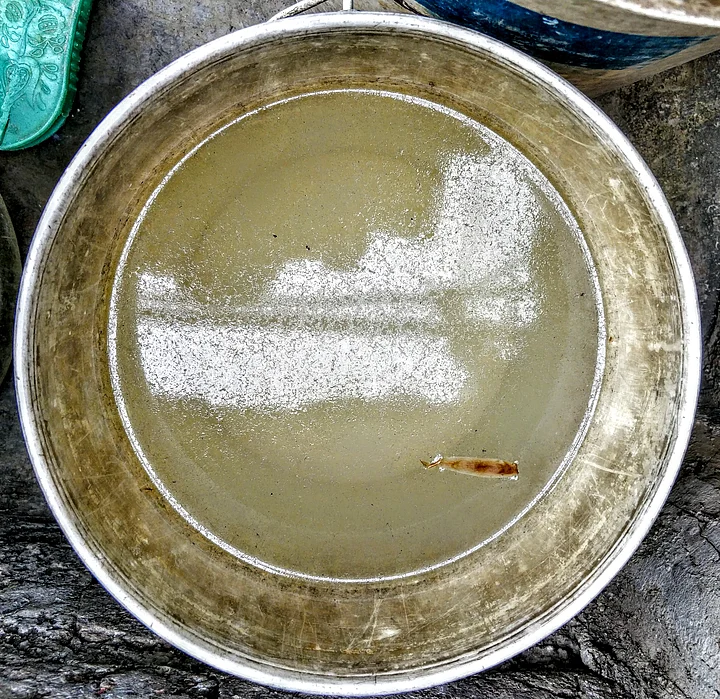
As the disorganisation and apathy continues, Shaheed Sukhdev Nagar in West Delhi remains imprinted, in public memory, as a water-scarce locality in the National Capital, where neighbours turned foes over the fight for drinking water. A man was killed before his time, and his family was forced to flee from a city that they hoped would change their fortunes. What more will it take for the government, and us as a people, to act upon a crisis that stares us in the face?
(At The Quint, we are answerable only to our audience. Play an active role in shaping our journalism by becoming a member. Because the truth is worth it.)
